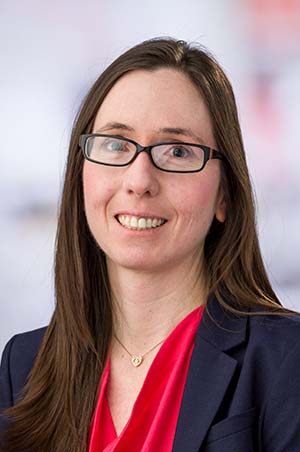Rachel L. Yung, MD
Associate Professor
Clinical Research Division, Fred Hutch
Dr. Rachel Yung is a medical oncologist who studies new ways to treat breast cancer. She leads clinical trials that aim to identify unique signatures on cancer cells that could help improve outcomes and reduce side effects from treatments such as chemotherapy and hormone therapy. Dr. Yung also studies how lifestyle can influence the quality of care, patient-reported outcomes, prevention and survivorship of cancer.
Other Appointments & Affiliations
Director, Breast and Ovarian Cancer Prevention Clinic, Fred HutchDirector, Breast and Ovarian Cancer Prevention Clinic
Fred Hutch
Director, Women's Wellness Clinic
Fred Hutch
Associate Professor, Division of Hematology and Oncology
University of Washington School of Medicine
Education
Research Fellowship, Medical Oncology, Dana‐Farber Cancer Institute
Clinical Fellowship, Medical Oncology, Dana‐Farber Cancer Institute, Brigham and Women’s Hospital, Massachusetts General Hospital
Residency, Internal Medicine, Beth Israel Deaconess Medical Center
Clinical Internship, Internal Medicine, Beth Israel Deaconess Medical Center
MD, Harvard Medical School
BS, University of Nebraska
Research Focus
Dr. Yung realizes the impact that a cancer diagnosis makes on a person's life. She feels that it is an honor to provide care to patients and their families during such an important time in their lives. "My research focuses on the effect of lifestyle on cancer, quality of care, patient reported outcomes, prevention and survivorship," she says. In addition to the connection she feels to her patients, Dr. Yung is helping to implement new treatment options through Fred Hutchinson Cancer Center's clinical trials program. She believes that offering research opportunities to patients is an important part of the care provided at Fred Hutch. "Already in my career, I have seen amazing developments in breast cancer therapy in regards to more effective and less toxic therapies," she says. "I remain dedicated to both improving cancer outcomes and reducing side effects."
